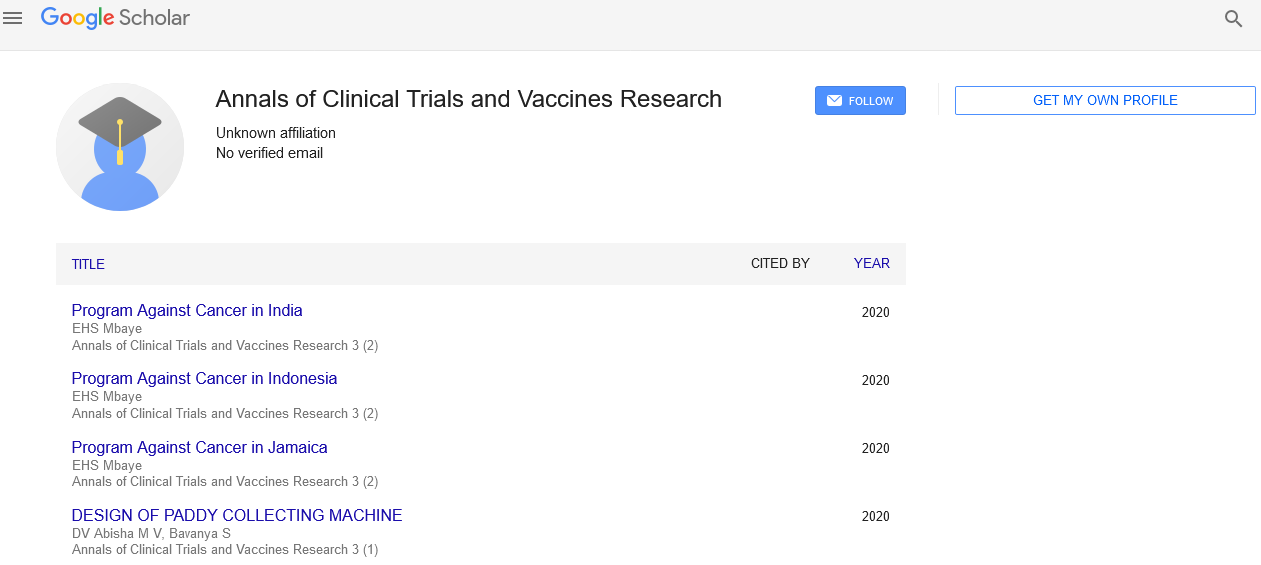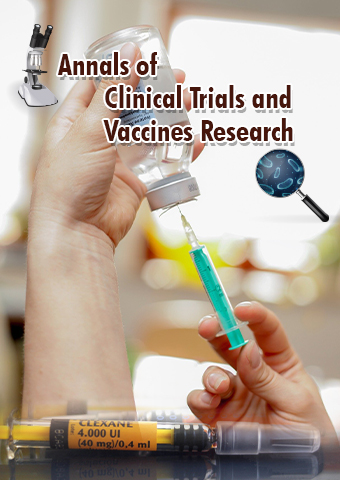Perspective - Annals of Clinical Trials and Vaccines Research (2024) Volume 14, Issue 6
Quality Assurance (QA) for Vaccines: A Critical Pillar of Public Health Safety
- Corresponding Author:
- Raj Kiran Kulhaadi
Department of Pharmaceutical Analysis, University of Beraunti, Beraunti, India
E-mail: Kulhaadi.Raj@gmail.com
Received: 27-Nov-2024, Manuscript No. ACTVR-24-153429; Editor assigned: 02-Dec-2024, Pre QC No. ACTVR-24-153429 (PQ); Reviewed: 16-Dec-2024, QC No. ACTVR-24-153429; Revised: 21-Dec-2024, Manuscript No. ACTVR-24-153429 (R); Published: 28-Dec-2024, DOI: 10.37532/ACTVR.2024.14(6).298-299
Introduction
Vaccines are a cornerstone of modern medicine, safeguarding millions against infectious diseases and reducing the burden on global healthcare systems. The integrity, safety, and efficacy of vaccines are ensured through rigorous Quality Assurance (QA) processes. QA plays a pivotal role in building public trust, adhering to regulatory requirements, and maintaining the scientific rigor necessary for vaccine production. This article delves into the comprehensive QA measures that underpin vaccine development, production, and distribution.
Description
Understanding QA in vaccine development
QA in the context of vaccines refers to systematic activities that ensure products meet predefined standards of quality. It is an overarching framework encompassing quality control, compliance with Good Manufacturing Practices (GMP), and adherence to regulatory guidelines. From preclinical research to post-marketing surveillance, QA encompasses every stage of the vaccine lifecycle.
Key components of QA for vaccines
Research and Development (R&D) Phase: Establishing Foundations:
During the R&D phase, QA ensures that all scientific protocols and ethical guidelines are followed.
Laboratory procedures, animal testing, and early human trials are conducted under strict monitoring to identify potential risks and optimize efficacy.
Documentation and traceability are critical, ensuring that all processes can be reviewed and audited.
Clinical Trials: Safeguarding human participants
QA teams oversee clinical trials to ensure compliance with Good Clinical Practices (GCP).
Trial protocols are rigorously reviewed, and independent monitoring bodies ensure unbiased results.
Data integrity, patient safety, and informed consent are pivotal QA considerations during this phase.
Manufacturing processes: Achieving consistency
Vaccine production involves intricate biological processes that demand consistency and precision. QA protocols enforce GMP, including sterility testing, contamination prevention, and batch-to-batch consistency checks.
Raw materials, equipment, and environmental conditions are meticulously monitored.
Quality control (QC): Ensuring compliance
QC is a subset of QA that involves testing vaccine batches for potency, purity, and safety.
This includes tests for contaminants, ensuring the absence of harmful substances such as endotoxins.
Validation studies are conducted to confirm that vaccines meet all efficacy and stability standards.
Regulatory oversight: Meeting standards
Regulatory authorities such as the FDA (U.S.), EMA (Europe), and WHO (global) set stringent quality benchmarks for vaccines.
QA teams ensure that production facilities are inspected and certified according to these regulatory standards.
Documentation of QA activities is submitted to authorities for licensure and market approval.
Cold chain management: Maintaining integrity
Vaccines are highly sensitive to temperature fluctuations, necessitating robust QA for cold chain logistics.
QA protocols include validation of storage equipment, monitoring during transportation, and real-time temperature tracking.
Post-marketing surveillance: Ensuring long-term safety
After vaccines reach the market, QA extends to pharmacovigilance programs that monitor adverse events.
Feedback from healthcare providers and recipients helps refine production processes and address any emerging issues.
Periodic re-evaluation ensures that vaccines remain effective and safe over time.
Challenges in QA for vaccines
Scaling production for pandemics:
During global health crises, the urgency to produce vaccines quickly can strain QA processes.
Balancing speed with stringent QA requirements is a significant challenge.
Global distribution and equity
QA must address disparities in infrastructure, ensuring vaccines meet quality standards regardless of geographic location.
Coordinating QA efforts across international supply chains adds complexity.
Emerging technologies
Innovations such as mRNA vaccines bring unique QA challenges, including the validation of novel production techniques.
Ensuring quality while exploring new frontiers in vaccine technology requires adaptive QA frameworks.
Counterfeit vaccines
QA processes must include measures to combat counterfeit vaccines in the market.
Authentication systems and tamper-proof packaging are integral to QA efforts.
The role of digital technologies in QA
Advancements in technology have revolutionized QA processes in the vaccine industry:
Automation and robotics: Streamline manufacturing and testing processes, reducing human error.
Data analytics: Enable predictive modeling and real-time monitoring to identify quality risks.
Blockchain: Provides secure traceability across the supply chain, enhancing transparency and trust.
Artificial Intelligence (AI): Assists in analyzing vast datasets from clinical trials and pharmacovigilance programs.
Building public confidence through QA
The success of any vaccination program hinges on public trust, which is built on the assurance of vaccine quality. Transparent communication about QA processes, coupled with rigorous adherence to standards, fosters confidence in vaccine safety and efficacy.
Conclusion
QA is the backbone of the vaccine industry, ensuring that each dose administered is safe, effective, and reliable. By addressing challenges, embracing innovation, and adhering to strict protocols, QA professionals play an indispensable role in protecting global health. As the world continues to face emerging infectious threats, robust QA systems will remain critical to the success of vaccination programs and the health of future generations.

